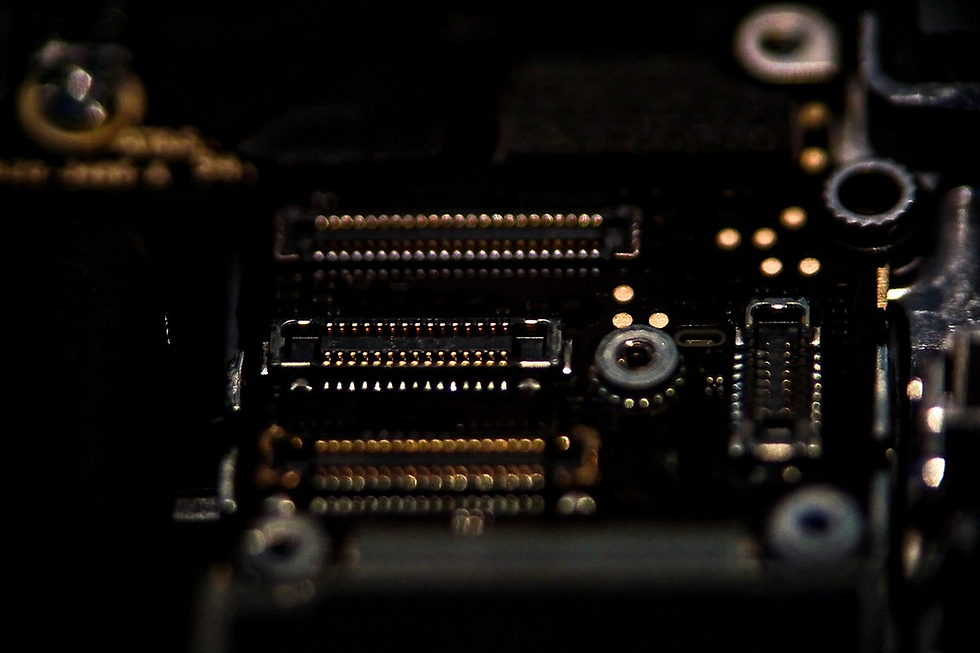Apple Accused of Using “Blood Minerals” in the Congo
- Grace Halepis
- Nov 8, 2024
- 3 min read
Updated: Nov 18

Courtesy Patrick Hendry, CC BY-SA 4.0 <https://creativecommons.org/licenses/by-sa/4.0>, via Wikimedia Commons
Tech giant Apple has been accused of exploitation in the Democratic Republic of Congo (DRC) for the mining of mineral resources. The DRC government partnered with international law firm Amsterdam and Partners to release the report Blood Minerals: The Laundering of the DRC’s 3T Minerals by Rwanda and Private Entities; with the intent to sue for human rights violations. The report details how various tech companies, including Apple, have sourced smuggled minerals from the Rwandan rebel group M23.
For decades Rwanda has maintained control over transport roads and mining sites, laundering the “3T minerals”— known as tin, tungsten, and tantalum — from different parts of the Congo. These minerals are obtained by any means necessary, including what many consider to be genocide and the displacement of millions of Congolese people. According to the DRC, Apple is therefore liable for racketeering, aiding and abetting, trade-based money laundering, and fraudulently misrepresenting the origin of minerals, in regard to the violations committed by Rwanda and the M23.
The term “blood minerals” describes the emerging conflicts associated with mining; such as armed groups committing acts of terrorism or violent crimes. The 3T minerals are among the most common conflict-inducing goods, creating tension within Africa’s Great Lakes region, including countries like the DRC and Rwanda. Through force, the M23 unit has ravaged the Congo to obtain 3T minerals, resulting in violations of multiple human rights laws.
Amsterdam’s report details violence, massive displacement of populations, sexual exploitation, loss of income, and all forms of degrading treatment, from the laundering of 3T minerals. The minerals are obtained by direct or indirect support to terrorist groups who control mining sites and transportation routes, resulting in a forced laundering exchange. Rwandan officials often infiltrate checkpoints along the mineral supply chain, altering the origin reports of the transported minerals.
While many tech companies are addressed in Amsterdam’s report, Apple has been challenged for accountability by news organizations due to its human rights mission statement, which states the following: “We work closely with our suppliers to uphold the highest standards of labor and human rights everywhere our business reaches.”
In 2018, CBS investigated a blood minerals case involving children mining cobalt in the Congo. Apple was cited as a company responsible for funding unethical cobalt companies but claimed to have cut ties with the largest artisanal cobalt supplier. Following the Amsterdam report, CBS participated in another investigation of Apple in April of 2024, specifying the company’s support for the exploitation of the 3T’s.
In a formal statement, Apple responded to the article and stood firm on company innocence: “[.....] last year we removed 14 refiners and smelters from our supply chain.” Apple prides itself on sustainable and ethical sourcing, concluding, “While we’re proud to be recognized as leaders in responsible sourcing, we understand our work is never done” (CBS News).
Contrary to this, Amsterdam’s report confirms Apple’s partnership with unethical smelters and refiners, such as Global Advanced Metals and KEMET.
Rwanda’s looting of the Congo’s mineral resources is not new — but rather evolved in strategy.
The 1990s began to see Rwanda use physical violence to explicitly steal natural resources in the Congo. Rwandan military officials would transport large amounts of coltan by helicopter, or bribe miners with forged US dollar bills. Plundering tactics changed in 2009 after Rwandan troops began joining Congolese military outposts, allowing for more subtle methods of exploitation.
These efforts were led by warlord Bosco Ntaganda, an established member of the Rwandan militia who became promoted to deputy commander of the Congolese military. Ntaganda smuggled around $15 million worth of resources across the Congo border to Rwanda, accomplished through control of the bordering Congo city of Goma. Once Ntaganda was established within the Congolese army, he broke ties with the DRC to lead the M23 Rwandan rebel group. Through forceful control and alliances with armed groups, the M23 now surveys the entirety of east Congo.
To stop the abuse of blood minerals, the report recommends a universal boycott of 3T Rwandan minerals and sourcing directly from the Congo. Although the conflict surges on, tech products still remain entrenched in the everyday lives of the consumer, continuing a need for the accountability of corporations.






Tech companies always have a lot going on behind the scenes, and it’s not always stuff consumers hear about. While reading up on Apple’s supply chain issues, it made me think about how much we rely on these big brands for everyday things, like phone service. Had a situation with T-Mobile customer service https://tmobile.pissedconsumer.com/customer-service.html when my plan had unexpected charges. Took a bit of back and forth, but they explained everything and adjusted my bill. Just another reminder that it’s always good to double-check the fine print on any service.